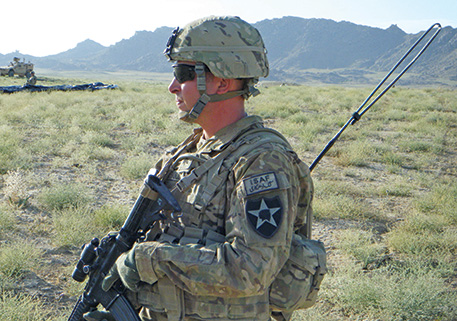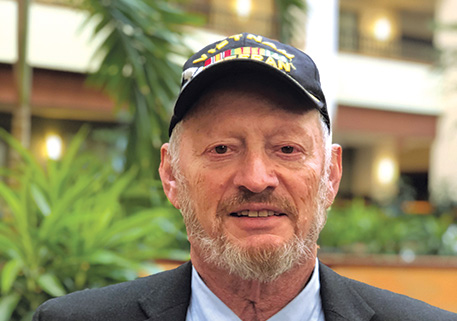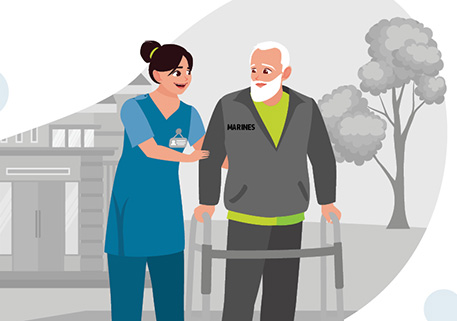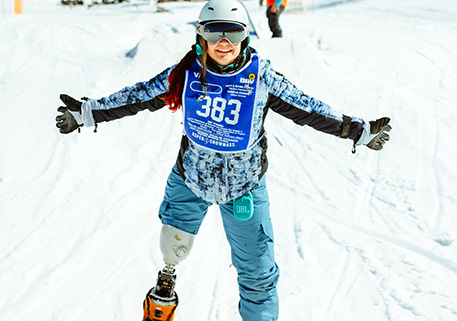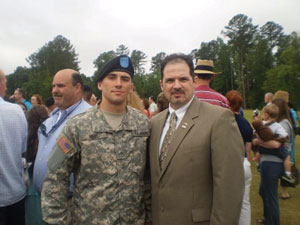
Father’s DAV service helps provide camaraderie, benefits to veteran son in need
Like any young teenager, Donnie Reed wasn’t happy at the prospect of being uprooted from his home in the summer of 2001. His father, Donald, had just been accepted into the DAV National Service Officer Training Academy, which meant the family would soon be relocating to Denver for the 16-week course. On top of that, they’d be living in a hotel since Donald and the rest of his class had yet to receive permanent assignments.
“My dad was in the military, so I was used to moving around a little bit,” Donnie explained. “But when you’re 13, you kind of get sick of it and just want to be with your friends.”
Little did Donnie know then, the move would play an integral role in his future.
“[The other people in my dad’s class] took me in and played basketball with me, and we had barbecues and stuff like that,” said Donnie. “It was exactly like that camaraderie you feel with other military families, and it planted a seed in me that DAV would always be there for me.”
Fast forward to January 2009, when Donnie followed in his father’s footsteps and enlisted in the Army as an infantryman—a decision that would send him to Samarra, Iraq, just nine months later. It was there, during his nine-month deployment, that Donnie would witness events that rocked his core.
“I saw some shocking, horrific things over there that highlighted the very worst of human nature,” he said. “It was eye-opening. The whole experience just made me have a hate inside me.”
To cope with his post-traumatic stress, Donnie turned to alcohol upon returning to Fort Riley, Kan., estimating at times he drank as much as a whole case of beer daily.
“It started a lot of arguments with my wife, but at the time, I just didn’t care. I’d just drink and go back to sleep,” he said. “I drank the pain away instead of going to the doctors to get some help like I should have.”
“He was always down and struggling a lot with yelling and anger problems,” said Donald, who is now the supervisor of the DAV office in Houston. “We kept telling him he needed to get some help at the VA.”
After getting divorced and separating from the Army in 2012, Donnie submitted a VA claim for PTSD, which was granted in February 2013 with the help of DAV. He also moved back to Colorado amid struggles with employment, which prompted him to submit a claim for Individual Unemployability benefits in April 2016, which the VA later denied.
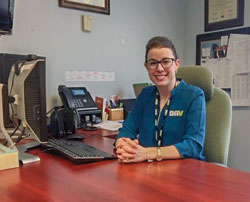

“It was a very clear case that should’ve been granted,” said National Service Officer Carmen McGinnis, a Marine Corps veteran and national area supervisor in the DAV office in Denver. “It was frustrating having to tell him that an appeal was his only option. So, when RAMP came out in November 2017, I immediately thought of him as being a perfect case for that.”
RAMP, the VA’s Rapid Appeals Modernization Program, helps streamline the appeals process by allowing eligible veterans to either seek higher-level review or file a supplemental claim.
“She just said, ‘I got you,’” Donnie remembered. “I put all my trust and faith in Carmen and sat comfortably knowing she was getting the job done.”
Just four months later, Donnie, 31, was granted entitlement to Individual Unemployability benefits and received a healthy retroactive payment from his original April 2016 claim date.
“As a DAV service officer, knowing the VA system and processes inside and out allows us to give veterans insight and reassurance that they’re on the right track with their claims,” said McGinnis. “Without DAV’s services, he might have been stuck in the VA appeals process for years. And to ultimately get a favorable outcome was really satisfying, and that’s what I love about what we do.”
All the while, Donnie rediscovered his purpose by enrolling at a local community college and volunteering to coach high school football in his free time.
“Being with those kids helped remind me I’m a good person,” he said. “I put down the bottle and picked up the pen.”
Donnie is now using his Post-9/11 GI Bill to pursue a bachelor’s degree in education with hope of becoming a special education teacher.
“I don’t think I’d be where I’m at in life without DAV,” Donnie said.
“If DAV wasn’t there for him, he’d most likely be in jail,” Donald agreed. “His victory is overcoming his struggles with PTSD, and DAV was there to help him.”



